#gertrude berg
Explore tagged Tumblr posts
Text

Radio and TV pioneer, Gertrude Berg (October 3, 1899 – September 14, 1966)
28 notes
·
View notes
Text





Emmy Nominations of Early Television.
9 notes
·
View notes
Text

























From the Golden Age of Television
Episode dated May 25, 1954
The Goldbergs - Music Lover - DuMont - May 25, 1954
Sitcom
Running Time: 30 minutes
Written by Gertrude Berg
Produced by Henry Opperman
Directed by Martin Magner
Stars:
Gertrude Berg as Molly Goldberg
Eli Mintz as Uncle David
Arlene McQuade as Rosie Goldberg
Tom Taylor as Sammy Goldberg
Robert H. Harris as Jake Goldberg
Ben Astar as Mr. Vargas
Dora Weissman as Mrs. Herman
Gene Leonard as The Critic
Regina Resnik as Eva Vargas
Leo Taubman At the piano
#Music Lover#TV#The Goldbergs#Sitcom#DuMont#1950's#1954#Gertrude Berg#Eli Mintz#Arlene McQuade#Tom Taylor#Robert Astar#Ben Astar#Regina Resnik
0 notes
Text
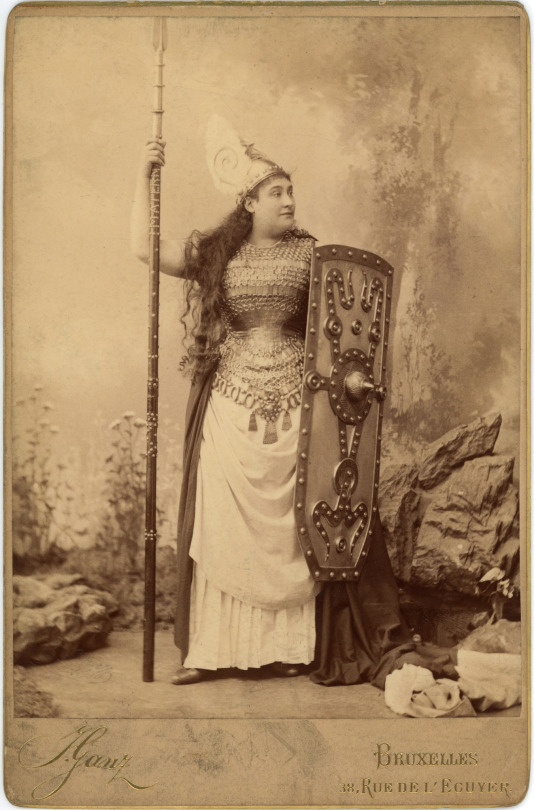


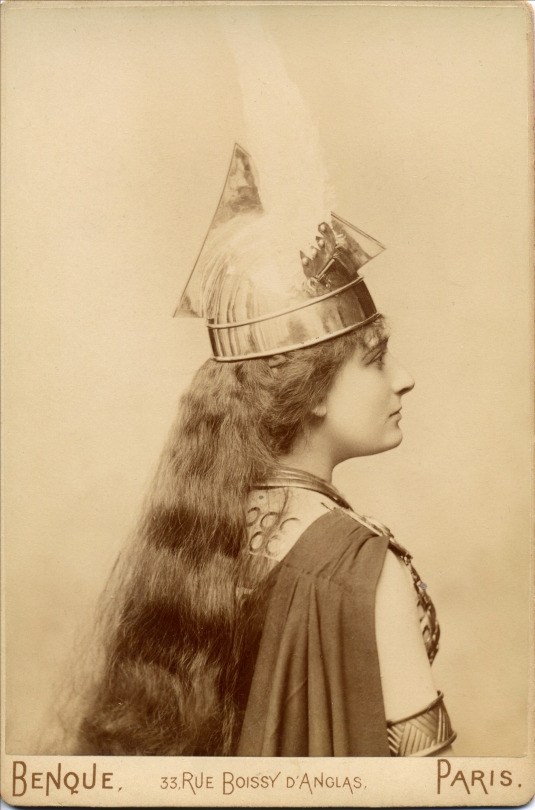



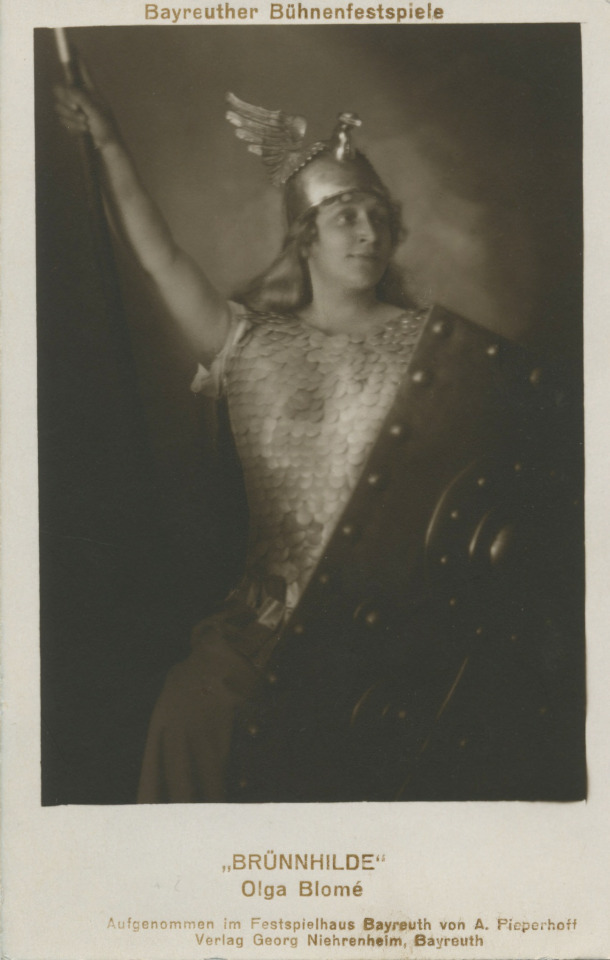
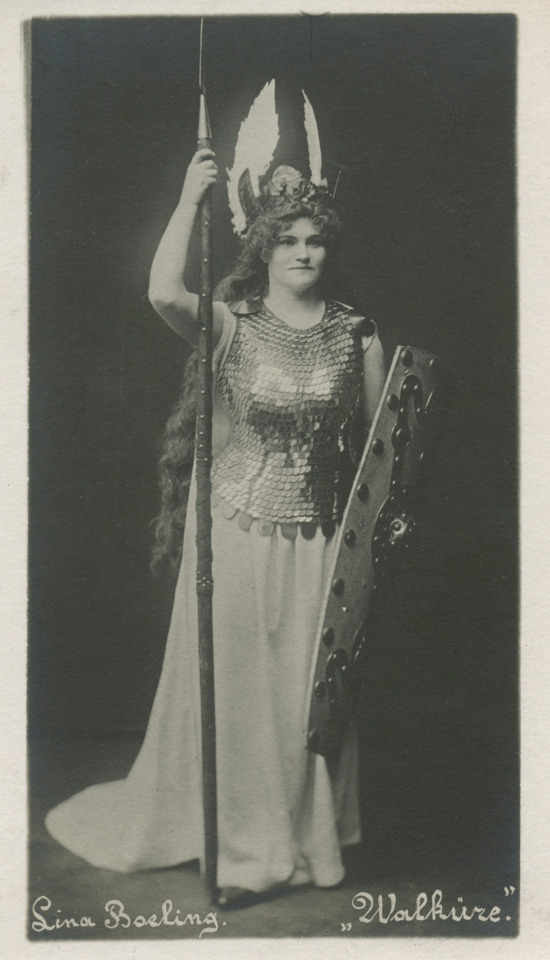
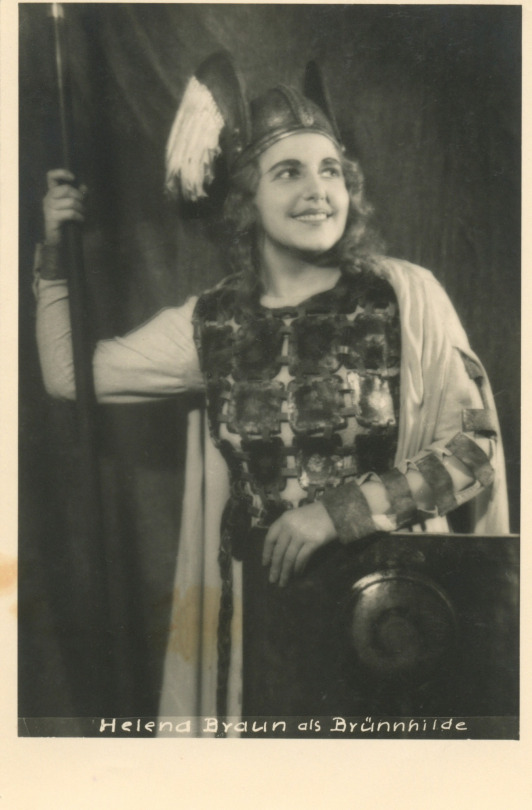

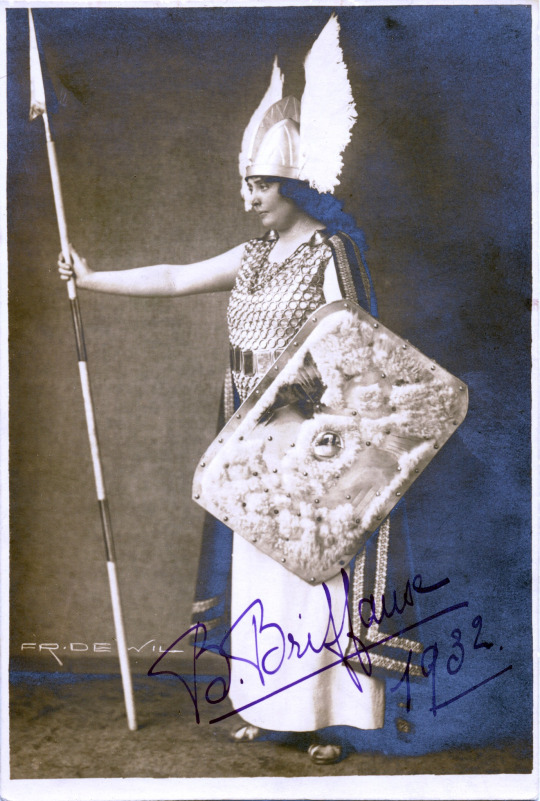
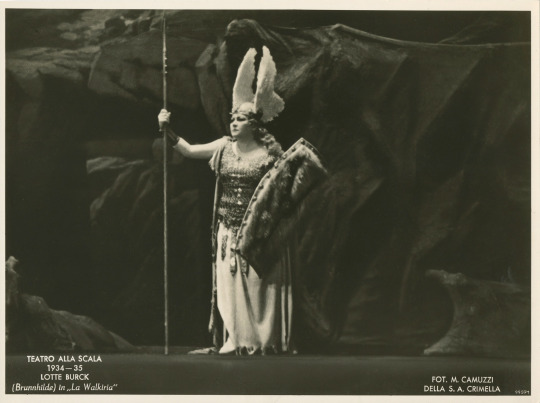
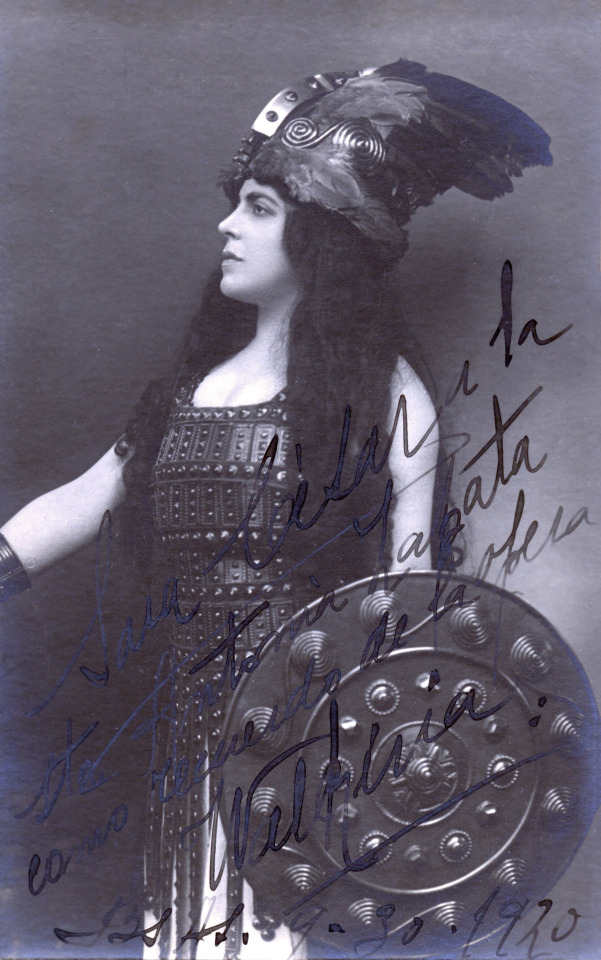
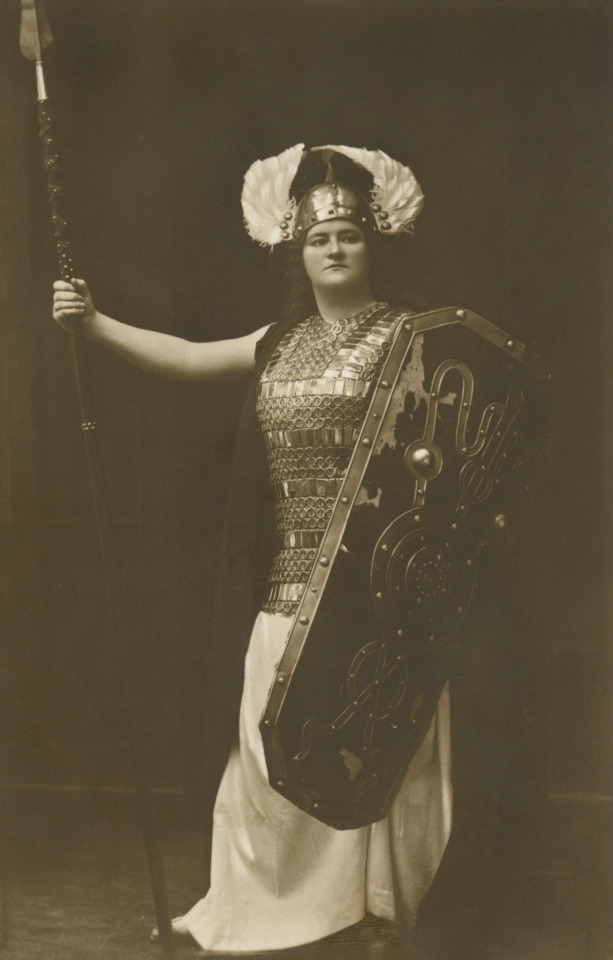

„WALKÜRE“ R. Wagner / SECOND and THIRD ACT
Some Brünnhildes
Amalie Materna as Brünnhilde; Bruxelles, 1889
Pauline Mailhac as Brünnhilde; Karlsruhe, 1891
Ellen Gulbranson as Brünnhilde; Bayreuth, 1902
Lucienne Breval as Brünnhilde; Paris, ca. 1900
Anna Bahr-Mildenburg als Brünnhilde; Vienna, ca. 1900
Laure Berge as Brünnhilde; Bruxelles, ?
Elise Beuer als Brünnhilde; ?, ?
Olga Blomé as Brünnhilde; Bayreuth, 1924
Lina Boeling as Brünnhilde; ?, ?
Helena Braun as Brünnhilde; Munich, ?
Gertrud Bindernagel as Brünnhilde; ?, ?
Berthe Briffaux as Brünnhilde; Antwerpen, 1932
Lotte Burck as Brünnhilde; Milan, 1932
Sara Cesar as Brünnhilde; Rome, 1920
Sofie Cordes-Palm as Brünnhilde; ?, ?
Erna Denera as Brünnhilde; Berlin, ?
#classical music#opera#music history#bel canto#composer#classical composer#aria#classical studies#maestro#chest voice#Die Walküre#The Valkyrie#Richard Wagner#Wagner#Der Ring des Nibelungen#The Ring of the Nibelung#Norse mythology#Völsunga saga#Poetic Edda#classical musician#classical mythology#classical musicians#classical voice#classical history#history of music#historian of music#musician#musicians#music education#music theory
35 notes
·
View notes
Text

#RudyTuesday The Goldbergs was a comedy-drama broadcast on radio from 1929 to 1946 and on television from 1949 to 1956. Gertrude Berg devised the program, which featured the home life of a Jewish family living in New York City. In addition to writing the scripts and directing each episode, Berg starred as bighearted, lovingly meddlesome matriarch Molly Goldberg.
The television version ran on CBS from 1949 to 1951 and then on NBC during the 1952–53 season. In 1954, the show moved to the DuMont network for a final run.
Above: An unidentified actor, Eli Mintz as Uncle David, Philip Loeb as Jake Goldberg, and Gertrude Berg as Molly Goldberg.
One in a series of photos from the Rudy Bretz papers at UMD.
4 notes
·
View notes
Text
Peter Lorre as college professor (TV)
"Can you imagine what would happen if science depended on you? We wouldn't have discovered water yet!"

Watch Peter Lorre guest star as chemistry professor Dr. Kestner in the TV sitcom, Mrs. G. Goes to College, “First Test” (Oct. 11, 1961):
youtube
But wait, there's more!
Peter reprises his role in Mrs. G. Goes to College, “The Trouble with Crayton” (Dec. 6, 1961):
youtube
Mrs. G. Goes to College is a 26-episode American sitcom starring Emmy Award-winning actress Gertrude Berg as Sarah Green, a 62-year-old widow who enters college. The sitcom aired on CBS from October 4, 1961 to April 5, 1962 and also starred Cedric Hardwicke, Skip Ward, and Mary Wickes. Wiki






#peter lorre#Dr. Kestner#Mrs. G Goes to College#1960s television#peter lorre television#cedric hardwicke#Youtube
14 notes
·
View notes
Text
Fun thing to kill time: I'm going to go to wikipedia and find the US TV Schedule for each year and share what shows sound good or interesting. Let's start with the 1950-1951 Primetime Schedule from Monday to Sunday:
Monday: The Goldbergs (Gertrude Berg's show, not the modern Goldbergs show), Dick Tracy, Hollywood Screen Test, the Perry Como Show. I'm interested in one other show on Mondays, but it had puppets (which are either really good or really disturbing).
Tuesday: Beulah, The Original Amateur Hour, Texaco Star Theatre and Life Begins at Eighty.
Wednesday: Four Star Revue, Arthur Godfrey and His Friends and Don McNeill's TV Club.
Thursday: The George Burns and Gracie Allen Show, The Alan Young Show, Kay Kyser's Kollege of Musical Knowledge and Martin Kane, Private Eye.
Friday: Club Seven, Life with Linkletter, Mama, Man Against Crime, Star of the Family and Cavalcade of Stars.
Saturday: Life with the Erwins, One Man's Family, The Frank Sinatra Show, Faye Emerson's Wonderful Town, The Faye Emerson Show, The Jack Carter Show, Your Show of Shows and Your Hit Parade.
Sunday: The Jack Benny Show, The Colgate Comedy Hour, Garroway at Large and What's My Line?
Whew, this took a while to write. Like a few hours to write down. It's very dull work. but I'm posting this anyway. I came too far to not post it. Maybe I'll do a few more of these (but probably never one for each year). Maybe three each decade, if we're lucky and I'm bored enough to commit to this.
#boredom#bored#random thoughts#I guess this is my own TV guide#Made on boredom#autism#asd#tv#wikipedia#tv shows#1950s#audhd#im bored
2 notes
·
View notes
Text
Hamlet d’Ambroise Thomas à l’Opéra de Montréal (Terminé)
D.I., Delinkan Intellectuel, revue d'actualité et de culture, in Societas Criticus Vol. 26-05 : www.societascriticus.com
Résumé
Hamlet d’Ambroise Thomas est une adaptation de l’emblématique pièce de théâtre de Shakespeare. À travers une brillante mise en scène d’Alain Gauthier, le public sera témoin de l’angoisse et du ressentiment tragique qui accablent les victimes d’un système où règne la corruption. Le talentueux chef Jacques Lacombe dirigera l’Orchestre Métropolitain.
Source : https://www.operademontreal.com/programmation/hamlet#summary
Argument
Acte I
Le mariage de Claudius et Gertrude est célébré. Hamlet, bouleversé par la mort de son père et le remariage subit de sa mère, est visité par le spectre de son père qui lui révèle avoir été assassiné par Claudius. Hamlet jure de le venger.
Acte II
Ophélie s'inquiète du comportement changeant de Hamlet. Lors d'un banquet, Hamlet engage une troupe de comédiens pour révéler, dans une pantomime mettant en scène un assassinat, la culpabilité du couple royal, provoquant colère et consternation.
Acte III
Hamlet contemple la destinée humaine dans le célèbre monologue « Être ou ne pas être. » Après avoir secrètement épié Claudius en proie au remords, il repousse Ophélie et confronte sa mère. Le spectre apparaît encore à Hamlet pour lui rappeler sa mission vengeresse.
Acte IV
Ophélie, repoussée par Hamlet, sombre dans la folie. Errante, en proie au délire, elle s'enfonce dans les eaux profondes d'un lac, hantée par ses souvenirs d'amour déçu.
Acte V
Hamlet songe avec regret à Ophélie, ignorant tout de son triste sort. Après une confrontation avec Laërte, un cortège funèbre révèle à Hamlet la fin tragique d'Ophélie. Alors qu'il songe à la rejoindre dans la mort, le spectre de son père le rappelle à son devoir. Hamlet tue Claudius et devient roi du Danemark.
Source : https://www.operademontreal.com/programmation/hamlet#argument
Distribution
HAMLET ELLIOT MADORE
OPHÉLIE SARAH DUFRESNE
LA REINE GERTRUDE KARINE DESHAYES
CLAUDIUS NATHAN BERG
LAËRTE ANTOINE BÉLANGER
MARCELLUS ROCCO RUPOLO
HORATIO ALEXANDRE SYLVESTRE
POLONIUS MATTHEW LI
LE SPECTRE ALAIN COULOMBE
CHEF D’ORCHESTRE JACQUES LACOMBE
METTEUR EN SCÈNE ALAIN GAUTHIER
CONCEPTION DES DÉCORS FRÉDÉRICK OUELLET
CONCEPTION DES COSTUMES SARAH BALLEUX
CONCEPTION DES ÉCLAIRAGES RENAUD PETTIGREW
CHEF DE CHŒUR CLAUDE WEBSTER
PIANISTE-RÉPÉTITRICE ESTHER GONTHIER
PIANISTE-RÉPÉTITEUR (CHŒUR) PIERRE MCLEAN
Source : https://issuu.com/operademontreal/docs/odm2461_prog_hamlet_fr_vf
Commentaires de Michel Handfield (2024-11-26)
D’abord, même si tous les médias ou presque l’ont fait, il faut souligner la prestation de Sarah Dufresne en Ophélie. (1) Ceci étant fait, revenons à notre sujet.
Si l’on connait surtout le Hamlet de Shakespeare, autour de 1600 (2), l’histoire d’Hamlet remonte bien avant, comme on le trouve sur Wikipédia :
- La légende scandinave d'Amleth (Saxo Grammaticus), vers 1200
- François de Belleforest, 1570
- Thomas Kyd et l'Ur-Hamlet, 1594 (3)
Ce livret d’Hamlet (4a), de Michel Carré (4b) et de Jules Barbier (4c), sur la musique d’Ambroise Thomas (5), est une adaptation de la pièce de Dumas père (6a) et de Paul Meurice (6b), intitulée « Hamlet, prince de Danemark », publiée en 1848. Elle a été présentée pour la première fois au Théâtre historique (Paris) (7) le 15 décembre 1847 (8), ce que nous apprend Wikipédia.
Bref, Hamlet a connu plus d’une version même si on l’associe toujours à Shakespeare ! De voir la version de Dumas et Meurice, plus contemporaine, fut rafraichissant.
Contrairement à la version de Shakespeare, où Hamlet meurt; dans cette version, plutôt basée sur le Hamlet d’Alexandre Dumas et Paul Meurice (9), il ne meurt pas, mais devra abandonner sa vie pour le royaume, car il devient roi et est bien seul, Ophélie s’étant suicidée suite à son comportement. Je cite les deux derniers passages à témoin :
Hamlet
Et moi? Vais-je rester, triste orphelin, sur terre,
À respirer cet air imprégné de misère?
Tragédien choisi par le courroux de Dieu,
Si j’ai mal pris mon rôle et mal saisi mon jeu,
Si, tremblant de mon œuvre et lassé sans combattre,
Pour un que tu voulais, j’en ai fait mourir quatre, -
Est-ce que Dieu sur moi fera peser son bras,
Père? Et quel châtiment m’attend donc?
Le fantôme
Tu vivras ! (10)
Le Pouvoir a donc ses exigences qui obligent souvent le renoncement de soi ! Un point de vue intéressant au moment où plusieurs cherchent la visibilité, la gloire, la richesse et le pouvoir sur les réseaux sociaux en se créant des personnages plus grands que nature, mais artificiels.
Tout cela, à quel prix?
C’est trop souvent au prix de se perdre soi-même dans l’illusion, une peine plus cruelle que la mort d’Hamlet dans la version shakespearienne, car il sera hanté tout son règne de la perte d’Ophélie, l’amour sacrifié ! Quand on regarde la monarchie, n’est-ce pas d’ailleurs leur triste destin? Connu et en apparence riche. Mais, ils ne s’appartiennent pas. Ils appartiennent à l’institution de l’État qu’ils incarnent et ont probablement moins de libertés individuelles que leurs sujets. Cela a donné lieu à quelques histoires tragiques...
Notes
1. https://www.operademontreal.com/artistes/sarah-dufresne
2. « La date exacte de la composition de la pièce n'est pas connue avec précision ; la première représentation se situe entre 1598 et 1601. Le texte fut publié en 1603. » https://fr.wikipedia.org/wiki/Hamlet
3. https://fr.wikipedia.org/wiki/Hamlet
4a. https://fr.wikipedia.org/wiki/Hamlet_(opéra)
4b. https://fr.wikipedia.org/wiki/Michel_Carré_(librettiste)
4c. https://fr.wikipedia.org/wiki/Jules_Barbier
5. https://fr.wikipedia.org/wiki/Ambroise_Thomas
6a. https://fr.wikipedia.org/wiki/Alexandre_Dumas
6b. https://fr.wikipedia.org/wiki/Paul_Meurice
7. https://en.wikipedia.org/wiki/Théâtre_Historique
8. https://fr.wikipedia.org/wiki/Paul_Meurice#Œuvres
9. Dans le programme, on nous parle d’Ambroise Thomas, le compositeur, mais pas du livret de Michel Carré et Jules Barbier, dont la finale ressemble bien au texte d’Alexandre Dumas et de Paul Meurice, ce dont on ne parle pas non plus. Après quelques recherches sur internet, pourtant, on trouve ceci :
« Hamlet is a grand opera in five acts of 1868 by the French composer Ambroise Thomas, with a libretto by Michel Carré and Jules Barbier based on a French adaptation by Alexandre Dumas, père, and Paul Meurice of William Shakespeare's play Hamlet. » https://www.operaamerica.org/calendar/production/22732/hamlet
10. Alexandre Dumas, Hamlet : prince de Danemark, Emplacement 1589 sur 1633 – 98%, BnF collection ebooks/Kindle
0 notes
Text
Birthdays 10.3
Beer Birthdays
John Gorrie (1803)
John Gund (1830)
Fred Horix (1843)
F.D. Radeke (1843)
Alois Alexander Assman (1856)
Sean Lewis (1984)
Five Favorite Birthdays
Harvey Kurtzman; cartoonist, Mad magazine founder (1924)
Clive Owen; actor (1964)
Greg Proops; comedian (1959)
Stevie Ray Vaughan; rock guitarist (1954)
Gore Vidal; writer (1925)
Famous Birthdays
Louis Aragon; French writer (1897)
P. P. Arnold; soul singer (1946)
Dr. Atl; Mexican painter (1875)
John Perry Barlow; poet & songwriter (1947)
Giovanni Battista Beccaria; Italian physicist (1716)
Gertrude Berg; actress & screenwriter (1899)
Pierre Bonnard; French artist (1867)
Benjamin Boretz; composer & theorist (1934)
Wade Boteler; actor & screenwriter (1888)
James M. Buchanan; economist (1919)
Lindsay Buckingham; rock guitarist (1949)
Johnny Burke; songwriter (1908)
Neve Campbell; actor (1973)
Natalie Savage Carlson; author (1906)
Chubby Checker; pop singer (1941)
Eddie Cochran; rock singer (1938)
Chris Collingwood; English-American singer-songwriter (1967)
Giovanni Comisso; Italian author and poet (1895)
Antoine Dauvergne; French violinist & composer (1713)
Pierre Deligne; Belgian mathematician (1944)
Gerardo Diego; Spanish poet (1896)
Jean Grémillon; French director, composer & screenwriter (1901)
Fulke Greville, 1st Baron Brook; English poet (1554)
Eirik Hegdal; Norwegian saxophonist & composer (1973)
James Herriot; English writer (1916)
Roy Horn; illusionist, with Siegfried (1944)
A.Y. Jackson; Canadian artist (1882)
Allan Kardec; French author (1804)
Jessica Parker Kennedy; Canadian actress (1984)
Pyotr Kozlov; Russian archaeologist & explorer (1863)
Ronnie Laws; jazz, R&B, & funk saxophone player (1950)
Tommy Lee; rock drummer (1962)
Henry Lerolle; French painter (1848)
Rob Liefeld; author and illustrator (1967)
Gustave Loiseau; French painter (1865)
G. Love; singer-songwriter & guitarist (1972)
Leo McCarey; film director (1898)
Keb' Mo'; blues singer, songwriter (1951)
Janel Moloney; actress (1969)
Alan O'Day; singer-songwriter (2940)
Emily Post; etiquette columnist (1872)
Steve Reich; modern composer (1936)
Kevin Richardson; singer-songwriter & actor (1971)
Aleksandr Rogozhkin; Russian director & screenwriter (1949)
John Ross; Cherokee nation chief (1790)
Josephine Sabel; singer & comedian (1866)
Sebastian Anton Scherer; German organist & composer (1631)
Seann William Scott; actor (1976)
Al Sharpton; politician, civil rights activist (1954)
Jake Shears; singer-songwriter (1978)
Laurie Simmons; photographer & director (1949)
Ashlee Simpson; singer-songwriter & actress (1984)
Shannyn Sossamon; actress (1978)
Gwen Stefani; rock singer (1969)
C. J. Stroud; football player (2001)
Tessa Thompson; actress (1983)
Sophie Treadwell; playwright & journalist (1885)
Johann Uz; German poet & judge (1720)
Buket Uzuner; Turkish author (1955)
Carl von Ossietzky; German journalist & activist (1889)
Jack Wagner; actor and singer (1959)
Dave Winfield; San Diego Padres OF (1951)
Thomas Wolfe; writer (1900)
Allen Woody; bass player & songwriter (1955)
Sergei Yesenin; Russian poet (1895)
1 note
·
View note
Text
Glamorous Gertrude Olmstead
I know not whether Gertrude Olmstead (1897-1975) was related to the famous designer of city parks, but I do know that, astoundingly, she is far from the only bygone star named Gertrude, what with Gertrude Hoffman, Gertrude Vanderbilt, Gertrude Astor, Gertrude Lawrence, Gertrude Niesen, Gertrude Ederle, Gertrude Selby, and even ethnic outliers like Gertrude Berg and Gertrude Howard all in the mix.…

View On WordPress
0 notes
Text

Following its radio success, “The Goldbergs,” created by and starring Gertrude Berg co-starring Philip Loeb, went live on CBS TV on January 10, 1949. Gertrude Berg won the first Emmy Award for Best Actress in 1951 adding to her impressive resume.
19 notes
·
View notes
Photo



1952.
Phillip Loeb’s Blacklist Settlement.
2 notes
·
View notes
Text

Karl Korn: Beiträge in der MEDAMANA 1980-1996
Quelle: https://www.aulemettmanner.de/pdf/Medamana%20Inh.%20Verz%201954%20-%202020.pdf
Andreas Korn: Mein Vater Karl Paul Korn - Heimatforscher in Mettmann Für die Medamana - Heimatblatt der Vereinigung "Aule Mettmanner" hat mein Vater und leidenschaftlicher Heimatforscher eine große Anzahl an Beiträgen verfasst. Freundlicherweise hat die Redaktion der Medamana die Inhaltsverzeichnisse 1954-2020 online gestellt.
Daraus konnte ich die Essays meines Vaters identifizieren und hier zusammentragen. In dem Autorenverzeichnis sind mir auch einige Personen aufgefallen, mit denen mein Vater in Verbindung gestanden hat.
Dies sind beispielsweise diese Persönlichkeiten, an die ich hier gerne erinnere: Dr. Karl Klockenhoff, Prof. Georg Kuhlmey, P. Winkels, Kanonikus Dr. Kessel, Gertrud Middell, Horst-G. Hütten, Bürgerm. W. Voß, Bernd Gansauer, Gustav Voß, Fritz Löckenhoff, Paul Kriegel, Michael Schaffers, Helmut Kreil u.a.
Zugleich ist anzumerken, dass Karl Korn mit einigen persönlichen Forschungsschwerpunkten (wie St. Lambertus, Chronik der Familie Korn, St. Caecila Hubbelrath) zum Teil umfangreiche Abschrift- und Manuskriptsammlungen in kleinen eingebundenen Editionen zusammengetragen hat. Meine Bibliografie gibt hier Interessierten Auskunft.
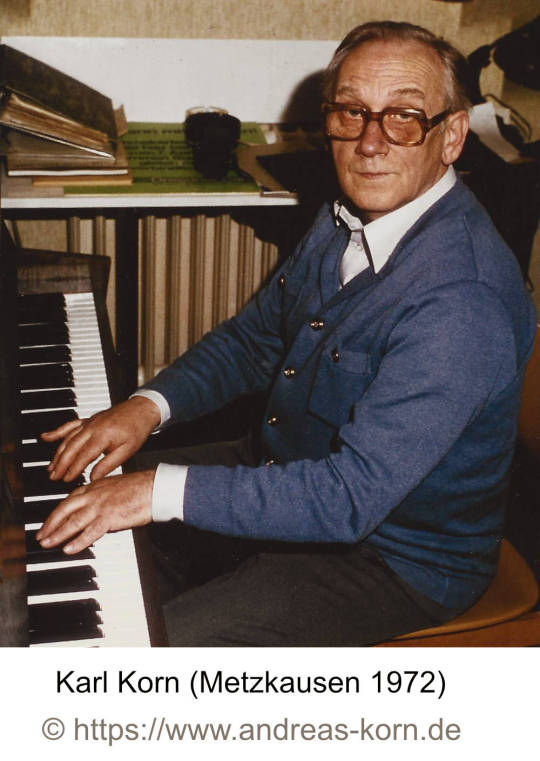
(Foto beim Klavierspiel auf einem Klavier aus Emmerich von Tetsch & May, dem Geburtsort seiner Frau Klara Korn, geb. Schmidt)
Aufstellung der Beiträge von Karl Korn in der Mettmanner MEDAMANA
Medamana Nr. 3 27. Jahrgang Oktober 1980 Karl Korn: Ruhrgebietsbesatzung in Mettmann, S. 74 Karl Korn: Besetzung der Bürgermeisterei Hubbelrath, S. 82
Medamana Nr. 4 27. Jahrgang Dezember 1980 Karl Korn: "Em Hassel wued en Kerk jebout", S. 98 Karl Korn: Winter am Eidamhauser Berg, S. 110
Medamana Nr. 4 28. Jahrgang Dezember 1981 Karl Korn: Aus der Schulchronik der Schule Obschwarzbach, S. 74
Medamana Nr. 1 29. Jahrgang April 1982 Karl Korn: 75 Jahre Max Hoffstaedter, S. 6 Karl Korn: Aus der Chronik der kath. Schule Obschwarzbach (Teil 2), S. 15
Medamana Nr. 3 29. Jahrgang Oktober 1982 Karl Korn: 75 Jahre Weltspiegel Kino, S. 8
Medamana Nr. 1 30. Jahrgang April 1983 Karl Korn: Vor 100 Jahren Neubau der Lambertus Kirche, S. 2
Medamana Nr. 3 36. Jahrgang September 1989 Karl Korn: Mettmann im Kriege 1939-1940, S. 45
Medamana Nr. 4 36. Jahrgang Dezember 1989 Karl Korn: Mettmanner im Krieg 1939-1941 (Teil 2) , S. 67
Medamana Nr. 1 38. Jahrgang April 1991 Karl Korn: Sedan-Feier vor 120 Jahren , S. 16
Medamana Nr. 4 38. Jahrgang Dezember 1991 Karl Korn: Kreuzkasel aus der Pfarrkirche Mettmann, S. 83
Medamana Nr. 4 39. Jahrgang Dezember 1992 Karl Korn: Pfarrer Edmund Nießen gestorben, S. 74
Medamana Nr. 4 40. Jahrgang Dezember 1993 Karl Korn: Die Glocken von St. Lambertus , S. 63
Medamana Nr. 4 41. Jahrgang Dezember 1994 Karl Korn: Die Meßdiener von St. Lambertus, S. 79
Medamana Nr. 2 42. Jahrgang Juni 1995 Karl Korn: Aus der Geschichte der Evangelischen Schulen 1630-1939, S. 36
Medamana Nr. 4 43. Jahrgang Dezember 1996 Karl Korn: SPARTAKUS-Aufstand in Mettmann und Hubbelrath, S. 77
+ + +
Dr. Andreas Korn, 10.10.2023 Foto aus dem Familienarchiv: Karl Korn beim Klavierspiel in Metzkausen in der Hasselerstraße 53 um 1972.
+ + +
0 notes
Photo

Character Actor
Paul Smith ( February 5, 1929 – March 3, 2006 ) Comic character actor with a perpetually perplexed or, alternatively, bemused expression, who, during the 1950s, 1960s, 1970s and early 1980s, appeared in scores of television episodes, primarily sitcoms, including regular roles in five series, and was also seen in numerous theatrical features, television films and commercials, frequently in brief, sometimes unbilled, comedic bits. Best known for The Doris Day Show (1969-1971).
Smith was in 24 television episodes during the 1950′s encompassing eighteen series, from 1955's The Halls of Ivy, Navy Log and The 20th Century Fox Hour to 1959's Dinah Shore Show, in addition to a regular role on the 1959 sitcom Fibber McGee and Molly.
Seen in episodes of thirty series, starting, in 1960, with Johnny Midnight, Markham, Checkmate and Thriller, and ending in 1969 with Ironside and Adam-12, he was also a cast member in four sitcoms, among those series, and a semi-regular on a fifth, ABC's Bewitched, where, between 1966 and 1972, he appeared in nine episodes, usually playing a befuddled or exasperated cop who is flummoxed by the magical witchcraft of Samantha (Elizabeth Montgomery). The size of his roles was mostly small and he did not even receive billing in the credits of some of his TV installments.
Smith's earliest 1960s sitcom was CBS' Mrs. G. Goes to College, which marked Gertrude Berg's return to series TV in October 1961, after having portrayed a character, coincidentally also named "Molly", Molly Goldberg, on her long-running ethnic family sitcom, The Goldbergs, which predated the McGees' Molly by six years, having begun on radio in 1929, moved to CBS television in 1949 and ended in 1956. The plot centers around Sarah Green, a widow in her early sixties, who decides to acquire higher education, matriculates in her hometown college and interacts with, among others, her Cambridge University exchange professor (Cedric Hardwicke) and next-door neighbor George Howell, a character analogous to Smith's Roy Norris from Fibber McGee and Molly, replete with a no-nonsense wife (Aneta Corsaut).
Three years following Mrs. G. and, after having spent a couple of 1963 episodes playing Commander Carter in the World War II-set military sitcom McHale's Navy, Paul Smith was back in uniform as a clueless captain at Andrews Airforce Base, during peacetime, in No Time for Sergeants, his third regular role on a sitcom. Over a year of guest shots passed before Paul Smith was cast as a regular in another sitcom, his second on CBS and, again, on Monday night. The superhero spoof, Mr. Terrific.
Two more years of guest appearances followed, with Paul Smith eventually cast in The Doris Day Show, his final, and longest-running, sitcom, seen, as in the case of his two previous shows, Monday nights on CBS. After departing Doris Day in 1971, in his last eleven years in front of the cameras, Smith had small roles in a couple of made-for-TV movies and five appearances on segments of the ABC comedy anthology series Love, American Style. (Wikipedia)
#Character Actor#TV#Paul Smith#Fibber McGee and Molly#Mrs. G Goes to College#Mr. Terrific#The Doris Day Show#No Time For Sergeants
4 notes
·
View notes
Text
Gender Identity and Fashion

Historically, gendered clothing has been the norm for societies. Despite our culture shifting towards one that rebukes the separation of gender through behavior and stereotype, these ideas are deeply ingrained in our culture and are still the standard in many aspects of our daily life- namely clothing. Modern views debate the need for gender societally, but where did these interpretations of gender/sexuality originate from? How did preconceived beliefs manifest itself in the context of fashion? There's a lot to unpack.
Gender Identity in Fashion Historically
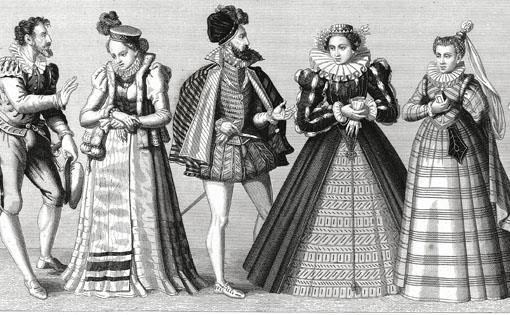
To understand why we interpret our clothing the way we do, we must first understand why we associate certain dress with either sex. One such example is the belief of skirts being feminine and trousers being masculine. “For centuries,[1300-1800] female fashion ignored women’s legs and hid them altogether, while women’s arms, busts, or hips were celebrated as erotic zones. Men, in contrast, showed their legs, and for a long period these counted among the male erotic zones.”(Lehnert). Given all fashion’s emphasis on the body, it’s likely we’ve developed our conceived notions of masculinity and femininity in dress based on what is sexually attractive and how to emphasize these features. “[it] has argued from a psychoanalytical perspective that, on the deepest level, all clothing is erotic because beauty derives from sexual sensations and the tension between sexual modesty”(Lehnert).
Gender Identity and Sexuality: Normative
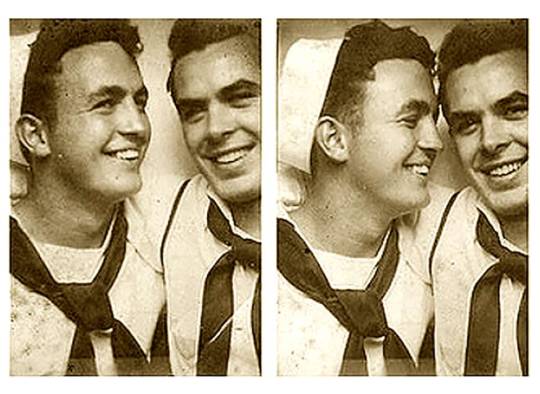
Assuming clothing is gendered based on sexual attraction, we can explore how these norms have developed into varying fashions to express sexuality and the evolving scope of gender. Expressions of varying sexualities have been done through a multitude of ways, earlier expressions of homosexuality presented normative; one such example of this was the prominence of sailors as a heavily fetishized concept for the gay community during the early to mid 1900s. “Soldiers and sailors had had an erotic appeal for gay men throughout the twentieth century, as one man’s reminiscences of sailors’ uniforms during the 1920s indicates: ‘It was very flattering, quite unlike the uniform of recent times. The neck of their tunic was cut in a very rough square, which gave the wearer a very masculine appeal… The trousers must have been made to titillate. They were very tight around the waist and bottoms, but baggy around the ankles. If the sailor wore no underwear then very little was left to the imagination.’"(Cole).
Gender Identity and Sexuality: Subversive
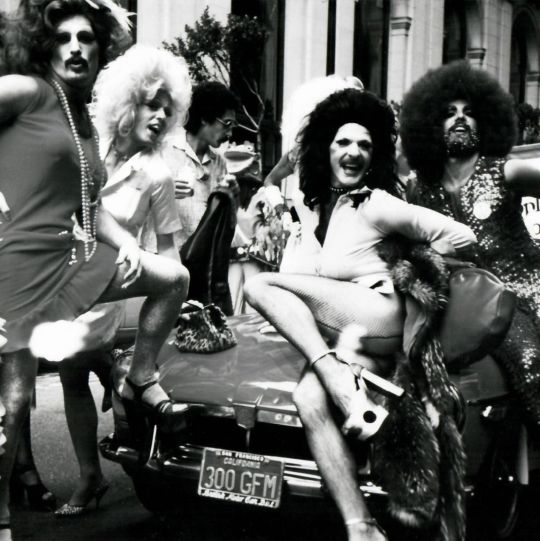
Subversive trends within sexuality began to take off with the arrival of punk in the 70’s. “The New York Dolls’ style of dress at this point was heavily influenced by the ‘two most famous downtown drag queens’ and cohorts of Andy Warhol, Jackie Curtis and Candy Darling. Jayne County describes Jackie Curtis as ‘a hip drag queen, [who] took everything to extremes. She walked around in ripped stockings and big tears in her dresses with threads hanging off…’”(Cole) The style’s destructive aesthetic allowed a revealing look that would lead to the club scene fashion of the 80’s, where skin, mesh, and layering were all the rage.
As our world rapidly modernizes and globalizes, the concept of gender has become controversial; creating a gray area of fashion for sexuality. It’s likely fashion will continue towards louder, less traditional styles, seeing how sexuality and gender’s role in the future will play heavily into our dress and trends alike.
Works Cited
Cole, Shaun. "Express Yourself: Clubbing at the Blitz, the Batcave, and Beyond", in ‘Don We Now Our Gay Apparel’: Gay Men’s Dress in the Twentieth Century. Oxford: Berg, 2000. 157–168. Dress, Body, Culture. Bloomsbury Fashion Central. Web. 16 Nov. 2020.
Lehnert, Gertrud. "Gender." Berg Encyclopedia of World Dress and Fashion: West Europe. Ed. Lise Skov. Oxford: Berg, 2010. 452–461. Bloomsbury Fashion Central. Web. 16 Nov. 2020.
1 note
·
View note
Text


The Molly Goldberg Cookbook, by Molly Goldberg and Myra Waldo (Doubleday, 1955). TX724 .B46 1955
Molly Goldberg was a character created by actress-writer-producer Gertrude Berg for her popular series, The Goldbergs, broadcast from 1929 to 1946 on radio and from 1949 to 1956 on television. The cookbook, published in 1955, was originally credited to Molly herself.
Later editions corrected the authorship to read “by Gertrude Berg and Myra Waldo.” And more recent editions have changed the title to The Molly Goldberg Jewish Cookbook, just in case no one remembers Molly Goldberg or The Goldbergs program anymore.
(Originally posted February 5, 2014.)
5 notes
·
View notes